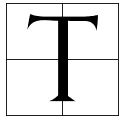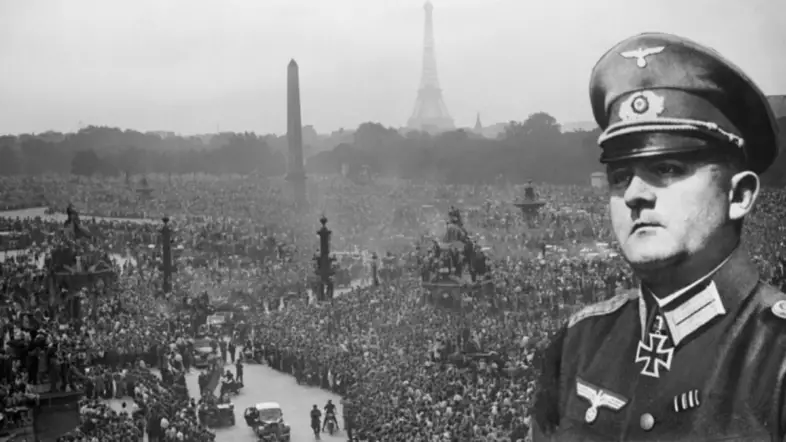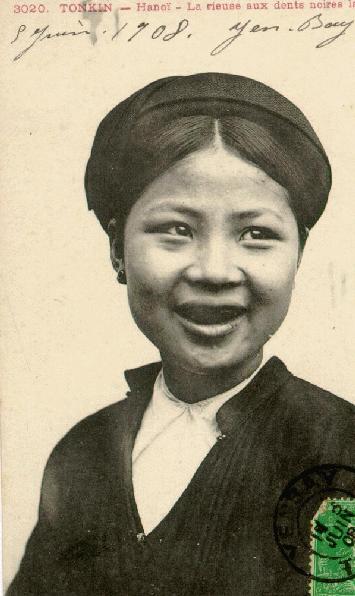“Is Paris burning?”
Adolf Hitler
 his is the famous question that Adolf Hitler asked general Dietrich Von Choltitz in 1944. No person had the guts to go against Hitler’s orders but Dietrich was one of the few who did. Hitler wanted to burn Paris to the ground in order to stop the advancements of Allied troops invading the western front.
his is the famous question that Adolf Hitler asked general Dietrich Von Choltitz in 1944. No person had the guts to go against Hitler’s orders but Dietrich was one of the few who did. Hitler wanted to burn Paris to the ground in order to stop the advancements of Allied troops invading the western front.
After the 6th of June 1944 (D-day) the western allies were making good progress toward pushing the Germans back. Some operations conducted by the British and the Americans through their alliance tricked the German army into believing that the main attack would take place somewhere else on the coast of France. This advantage (although not as effective as the Allies would have hoped) bought a lot of momentum, especially for the U.S. Army invading German-occupied France.

Burning the capital wasn’t exactly taking away a huge resource from the Allied troops. For Hitler, Paris had more than just strategic importance. In his mind, if he wasn’t able to have Paris in his hands anymore, then no one should.
“Paris must not fall into enemy hands except as a field of ruins.” (Quote by Adolf Hitler)
Although Dietrich was a cunning man and a true believer in the Aryan ideology he decided to save Paris from being burned to the ground. The question is why?
Who was General Dietrich Von Choiltitz?

Dietrich was the governor of France from the 7th of August 1944. This position was given to him due to his prolonged military experience during the First World War. During that time as well as the start of the Second World War he was known as a commander that would never dare to go against any orders.
He built himself a reputation during the Second World War for destroying Rotterdam and Sevastopol without any sort of regret. His demeanor wasn’t different when ordering the execution of young soldiers from the French resistance. Hitler would always talk in high regard about his commanders or generals that would respect his word until the last drop of blood.
Despite all of this, for some reason, on the 25th of August 1944, Dietrich chose to go against Hitler’s order of destroying Paris. On that day, French general Pierre Billotte at the command of the first armored brigade announced to Dietrich that all the main German defensive points in Paris had been taken over by the French resistance.
With allied reinforcements on the way, another German offensive to retake Paris would have meant the loss of a large number of German troops. An offensive to retake Paris would have been plausible, but the price would have been too big to pay. Therefore, Dietrich balanced the lives that would be lost in such an offensive to the importance of Hitler’s command.
Another plan he had in mind was bombing the whole city at night when the anti-air defenses would have poor visibility. Otto Dessloch, the commander of Luftflotte 3, the German tactical air force in France, told Dietrich that targets are much more difficult to hit at night and that he would not guarantee the destruction of Paris.
Saving Paris
With all options exhausted, Dietrich chose to speak about this matter with a good friend of his, General Hans Speidel. He was reminded about what it meant to go against the Fuhrer’s order but too many German lives were at stake and presumably, Dietrich started to realize that the war was lost for the German Army. An interesting phrase from their discussion was:
“You have passed on the order and you will be responsible to history.”
In an interesting book written in the memory of Dietrich entitled Brennt Paris? (translated to “Is Paris on Fire?”), the author Larry Collins and Dominique Lapierre mention that Dietrich saw Hitler’s order as absurd and crazy. The authors also mention Hitler’s obsession with Paris for it being his greatest achievement during Germany’s invasion of Europe and so precious that if he could not have it then no one should.
Dietrich managed to save Paris and himself from being killed for disobeying orders by persuading his superiors that most of Paris was already destroyed, which wasn’t true. At the same time, Dietrich made sure that all of the German troops would be pulled out of Paris without any further conflicts.
Hitler bought Dietrich’s lie about most of Paris being destroyed apart from the Eiffel tower as he would not think that Dietrich dared to disobey an order. It was only later on discovered by Hitler that Paris was actually intact and that Dietrich had lied to him.
Was Dietrich a traitor?
In the eyes of the German army, Dietrich was seen as a traitor, but no one took into consideration the number of lives he had saved. From a military point of view destroying Paris wasn’t really an advantage at all, maybe just stopping the advancement of the Allied troops by a few days at best.
The real reasoning behind Dietrich’s choice to save Paris is currently debated by historians all over the world. Some argue that he saved Paris due to its beautiful architecture and Dietrich’s love of architecture. Others think that Dietrich realized how mentally unstable Hitler had become, therefore lacking the reasoning to make such important military decisions.
Some historians actually argue that Dietrich realized that the war was lost and through this decision, maybe the Allies would protect his family from any punishment that was to come to the Germans once the war was over.
Good or bad, thanks to Dietrich Paris is still standing even to this day. No matter his reasoning for doing so, his choice determined the faith of this wonderful capital, and once again history was written with a similar font.
Avid Writer with invaluable knowledge of Humanity!
Upcoming historian with over 30 million views online.
“You make your own life.”





